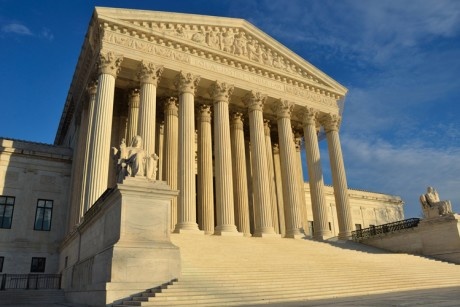What's next for Citizens United?

Mark your calendars for June 14, 2012. That's the day that the U.S. Supreme Court has announced it will take up what's being called Citizens United II, the first major test of their 2010 decision which loosened rules on corporate and union spending on elections.
At issue is a request by the conservative Virginia-based American Tradition Parnership that the Supreme Court overturn, without briefing or argument, an earlier decision by the Montana Supreme Court upholding the state's Corrupt Practices Act, a 1906 law which bans corporations from spending money from their treasuries directly on elections.
The Montana court's decision put it on a collision course with the U.S. Supremes, who in Citizens United argued that "independent expenditures, including those made by corporations, do not give rise to corruption or the appearance of corruption."
In the two years since Citizens United, outside election spending has skyrocketed -- from state legislative races like those in North Carolina, to the more recent growth of Super PACs that have dominated the presidential race.
The flood of outside money has helped fuel an anti-Citizens United backlash at all levels of government. So far, 22 states -- including the Southern states of Arkansas, Kentucky, Mississippi, North Carolina and West Virginia in the South -- have joined in asking the U.S. Supreme Court to uphold Montana's corporate spending ban.
Those states are part of a broader legal questioning of the Citizens United decision, which has included U.S. Senators Sheldon Whitehouse (D-RI) and John McCain (R-AZ) filing an amicus brief in the Montana case saying they "are deeply concerned about the rise of unlimited, anonymous money now flooding our elections."
The case also comes at a time when grassroots groups are stepping up efforts to force a reconsideration of Citizens United, including the underlying premise that corporations are people deserving speech rights.
In North Carolina, where outside spending by conservative benefactor Art Pope, a close ally of the Koch brothers, played a key role in 2010 state elections, legislators last week held a press conference to announce the introduction of a resolution asking Congress to amend the constitution to overturn Citizens United. As state Sen. Verlo Insko stated:
Corporations and trade unions are not people. They should not be able to buy political influence through unlimited advertising; they should not be able to purchase control over public policies. This is not Democracy. This is not what our Founding Fathers intended.
But what are the chances that the Supreme Court will reconsider its own 2010 decision in the case, much less Congress will move to amend the constitution to end corporate personhood?
Election expert Rick Hasen at the University of California-Irvine School of Law predicts the Supreme Court will summarily overturn the Montana decision, reaffirming their Citizens United ruling without hearing arguments.
Amend the U.S. constitution would be an even more difficult battle, one that not all opponents of Citizens United think is worth fighting.
But others like Maryland state senator Jamie Raskin, argue a constitutional push is a "flag in the sand," much like agitation for a women's suffrage amendment -- considered unwinnable after an 1875 U.S. Supreme Court decision dismissed the right to vote -- offered a rallying cry for decades before ratification of the 19th amendment in 1920.
The constitutional push may take years to prevail, and may never succeed, but it clarifies the goal of those fighting the explosion of money in politics -- or in Raskin's words, to "rebuild the wall of separation between corporate treasury wealth and American political elections."
Tags
Chris Kromm
Chris Kromm is executive director of the Institute for Southern Studies and publisher of the Institute's online magazine, Facing South.
